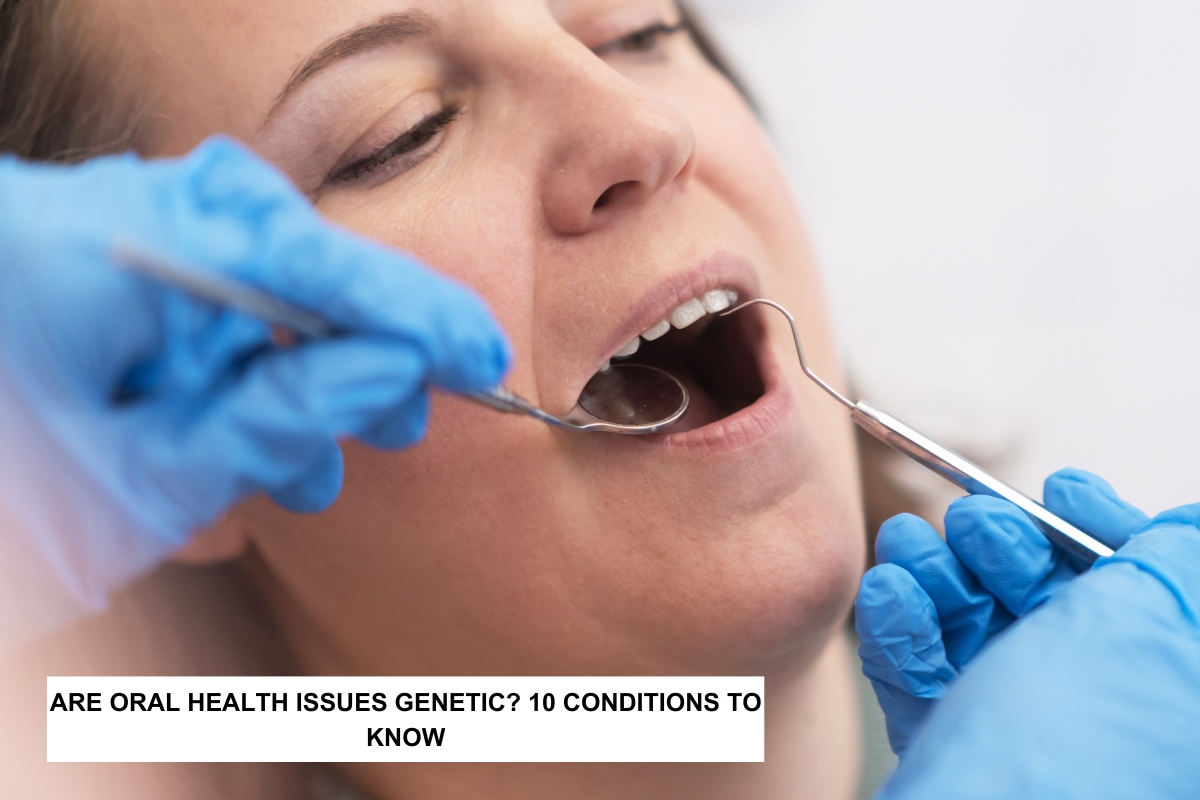
When you think about your oral health, you might wonder, are oral health issues genetic? It’s a common question, and the answer can be both surprising and informative. While personal habits like brushing and flossing play a big role, genetics also have a say in the health of your teeth and gums. Some conditions are passed down through generations, making it important to know what you could inherit. In this blog, we’ll explore 10 genetic oral health conditions you should know about and what you can do to keep your smile healthy.
What Role Does Genetics Play in Oral Health?
Genetics influences many aspects of your oral health, from the shape of your teeth to how vulnerable you are to certain conditions. Your genes can dictate how strong your enamel is, how likely you are to develop gum disease, and even whether or not you’ll have crooked teeth. While good oral hygiene can help, being aware of potential genetic issues is a proactive step in protecting your smile.
1. Tooth Decay (Cavities)
Some people are more prone to cavities due to their genetic makeup. If your parents have had a history of cavities, you may inherit weaker enamel or an increased risk for decay. It’s not just about sugar intake; your genetic disposition can make you more vulnerable to bacteria that cause cavities.
2. Gum Disease (Periodontitis)
Gum disease is another condition linked to genetics. If gum disease runs in your family, you might be at a higher risk of developing it. Genetics can affect how your body responds to harmful bacteria, leading to inflammation and gum damage. Regular check-ups with a dentist in Riverside can help catch any early signs.
3. Crooked Teeth or Misalignment
The shape and alignment of your teeth are heavily influenced by genetics. If your parents had braces or misaligned teeth, there’s a chance you’ll need orthodontic care as well. Crowded teeth can lead to bite issues, making orthodontic treatment necessary for a functional and aesthetically pleasing smile.
4. Enamel Hypoplasia
Enamel hypoplasia occurs when the enamel on your teeth is thin or underdeveloped, which can be due to genetic factors. Thin enamel makes teeth more susceptible to decay, sensitivity, and damage. Knowing if you have this condition early on can help you take preventative steps.
5. Oral Cancer
While lifestyle factors like smoking and alcohol use are major contributors, there is a genetic component to oral cancer. If there’s a family history of cancer, your risk may be elevated. Regular screenings by your Riverside dentist can help catch early warning signs.
6. Cleft Lip and Palate
Cleft lip and palate are congenital conditions that are influenced by genetics. These conditions occur when there is an incomplete formation of the lip or the roof of the mouth during fetal development. Early intervention and treatment are crucial for proper speech and oral function.
7. Bruxism (Teeth Grinding)
Teeth grinding, also known as bruxism, can be linked to genetic factors. If bruxism runs in your family, you may be at a higher risk for grinding your teeth, especially during sleep. Bruxism can lead to tooth damage, jaw pain, and other complications if left unchecked.
8. Tooth Agenesis
Tooth agenesis refers to the congenital absence of teeth, meaning some adult teeth never develop. This condition is often genetic, and if either parent experiences missing teeth, there’s a chance their child could too. Missing teeth can affect chewing, speech, and overall oral health, requiring dental interventions like implants or bridges.
9. Hereditary Gingival Fibromatosis
This rare genetic disorder causes an overgrowth of gum tissue, often covering the teeth entirely. While not painful, it can cause difficulty in maintaining proper oral hygiene, leading to other oral health problems. Surgical removal of the excess gum tissue is typically required to restore proper oral function.
10. Dentinogenesis Imperfecta
Dentinogenesis imperfecta is a genetic disorder that affects the development of dentin, the layer beneath your enamel. Teeth affected by this condition may appear discolored, brittle, and more prone to wear. Early diagnosis is crucial for managing the condition and preventing further tooth damage.
Can You Prevent Genetic Oral Health Issues?
While you can’t change your genes, you can certainly take steps to protect your oral health. A proactive approach includes:
- Regular dental visits to catch any genetic conditions early.
- Proper oral hygiene habits, like brushing twice a day and flossing daily.
- Avoiding sugary foods and drinks to reduce the risk of cavities.
- Use dental products designed for sensitive teeth if you have weak enamel.
What Should You Do If You Suspect a Genetic Condition?
If you believe you’re at risk for any of the genetic conditions mentioned above, speaking with a dentist in Riverside is your best next step. They can help you monitor potential issues and recommend treatments tailored to your genetic profile. With the right care, you can manage or even prevent many of these conditions from affecting your oral health long-term.
Are Oral Health Issues Genetic? Here’s What You Need to Know
So, are oral health issues genetic? Yes, they can be. From cavities to gum disease and even the alignment of your teeth, your genetics play a significant role in your oral health. However, with the right preventative care and a partnership with your dentist, you can minimize the impact of genetics on your smile. Staying proactive and informed is essential for maintaining a healthy smile for life.
Take control of your oral health today by understanding the genetic factors at play. It’s never too early to start protecting your smile!
